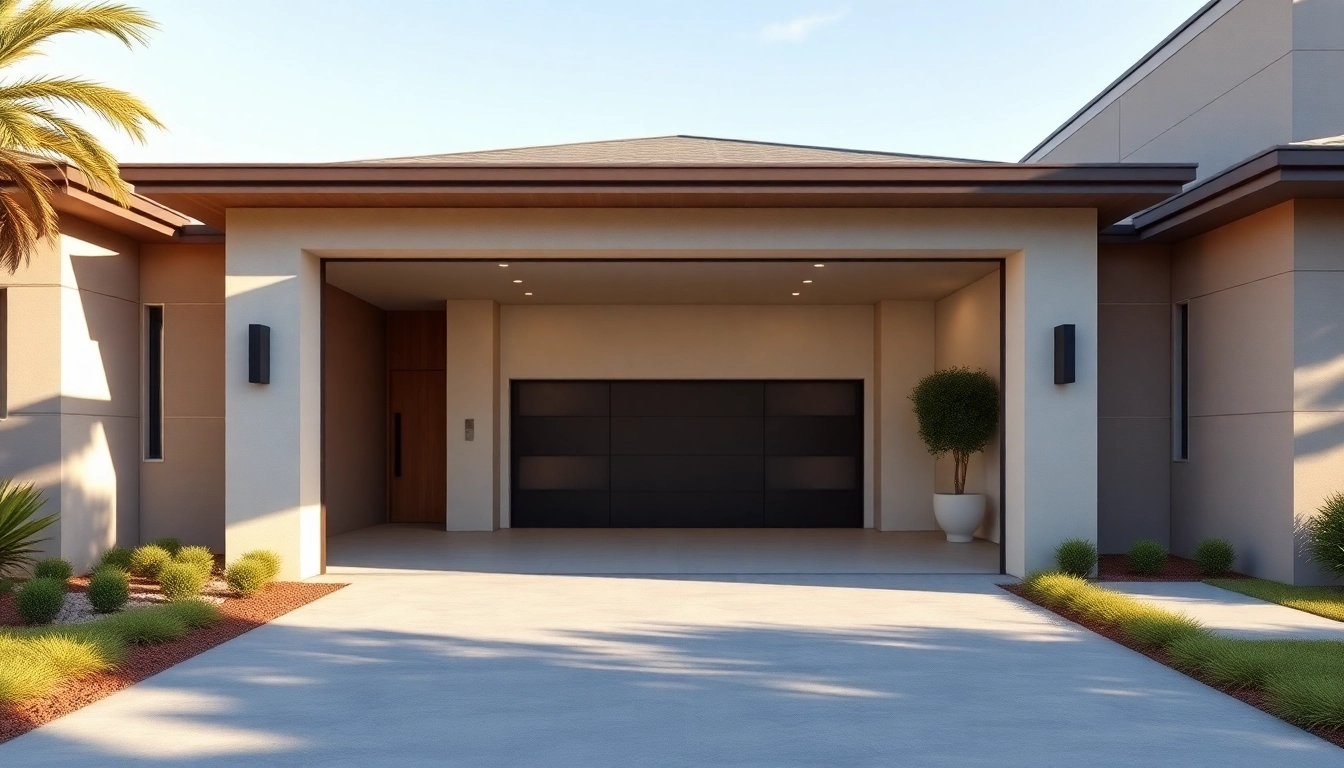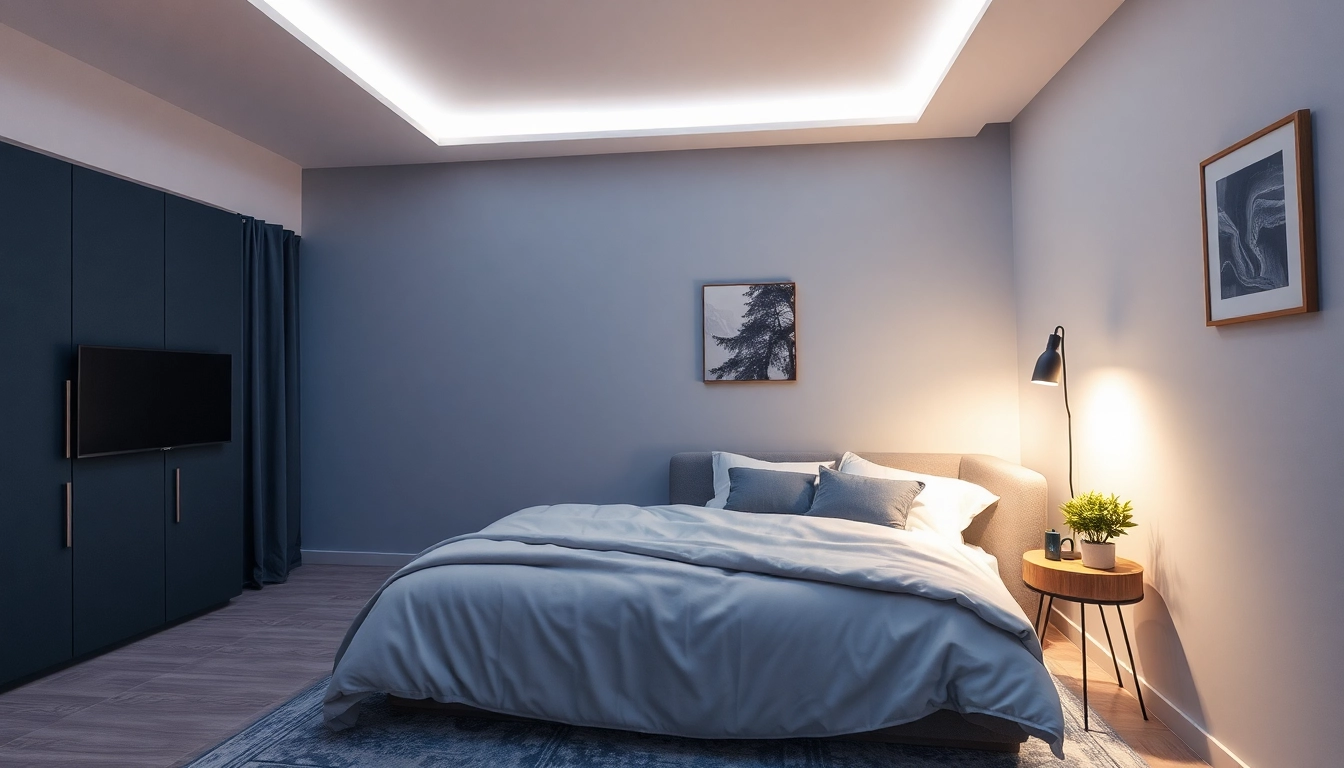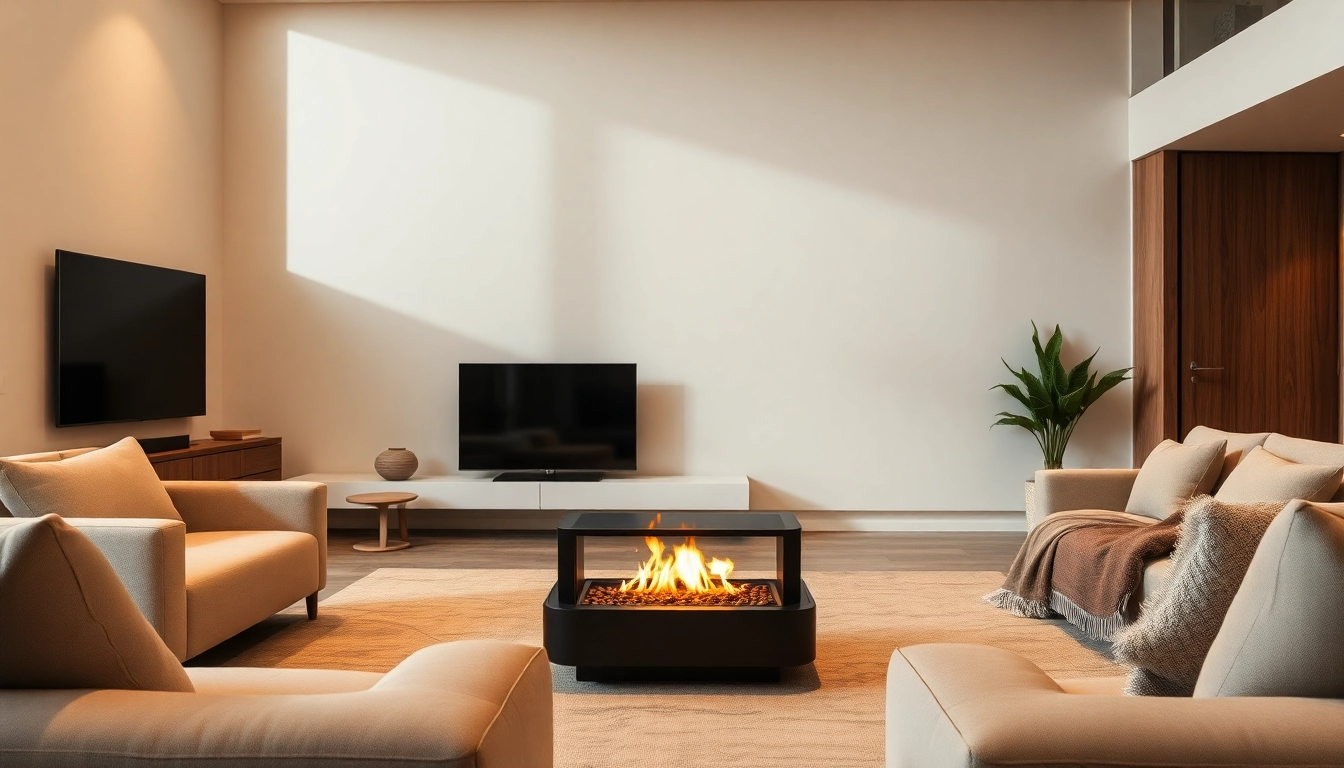Understanding Custom Garages
What Are Custom Garages?
Custom garages are tailored spaces designed to fit the unique needs and preferences of homeowners. Unlike standard garages, which may come in a few preset designs and sizes, custom garages allow for personalization in function, aesthetics, and layout. They can serve various purposes beyond merely housing vehicles—they can be transformed into workshops, hobby spaces, or even functional storage solutions. This versatility makes custom garages a popular choice among homeowners looking to optimize their living space.
Benefits of Custom Garages
Investing in a custom garage comes with numerous advantages, including:
- Personalized Design: Homeowners can choose the layout, materials, and finishes that best match their home and personal style.
- Enhanced Functionality: With the right design, custom garages can become multifunctional spaces that can serve various purposes, from work areas to fitness rooms.
- Increased Property Value: A well-designed garage can enhance the overall value of a property and may attract potential buyers.
- Better Organization: Custom garages can include built-in storage solutions, making it easier to keep the space organized and clutter-free.
- Energy Efficiency: Depending on the construction materials and insulation used, custom garages can be designed to be energy efficient, which can lead to lower utility bills.
Key Features to Consider
When planning a custom garage, several key features should be thoughtfully considered:
- Size and Layout: Determine the size that fits your needs—whether it’s a single, double, or even a triple-car garage. Additionally, consider how you want to arrange tools, vehicles, and any additional workspaces.
- Storage Solutions: Integrating cabinets, shelving, and overhead storage can maximize space utilization and organization.
- Garage Doors: Choose from a range of styles and materials for garage doors that complement your home’s aesthetic and provide security.
- Lighting and Electrical: Adequate lighting and outlets are crucial for functionality, especially if the garage will serve as a workspace.
- Heating and Insulation: Depending on your climate, consider heated options and ample insulation to maintain a comfortable environment year-round.
Designing Your Custom Garage
Choosing the Right Style
The style of a custom garage should harmonize with the architectural style of your home. Options vary widely, from rustic designs featuring wooden accents to sleek, modern finishes with clean lines and large windows. Understanding your style preferences and how they align with your home’s existing aesthetic will guide your design choices. Additionally, consider local guidelines and HOA regulations that might impact exterior design elements.
Materials and Finishes
When it comes to materials, homeowners have plenty of options, including:
- Wood: Offers a classic look, but requires more maintenance over time.
- Steel: Highly durable, offers excellent security, and can be finished in various colors.
- Vinyl Siding: Low maintenance and available in multiple colors and styles.
- Brick or Stone: Provides a high-end look with unmatched durability, often used in upscale neighborhoods.
Choosing the right combination of materials and finishes not only contributes to the overall aesthetic but also affects durability and maintenance requirements.
Space Optimization Techniques
Creating an efficient layout is crucial in custom garage design. Consider techniques such as:
- Vertical Storage: Utilize wall space for shelving and cabinets to keep the floor area clear.
- Modular Storage Solutions: Implement systems that can be easily adjusted as your storage needs change.
- Zones: Define specific zones for different activities, which can help keep the garage organized and functional.
- Rolling Workbenches: Add mobile work surfaces that can be relocated as needed for flexibility in work areas.
Cost Considerations for Custom Garages
Average Price Ranges
The cost of a custom garage can vary significantly based on size, materials, and features. On average, homeowners might expect to spend anywhere from $50,000 to $150,000 or more. Factors influencing this range include:
- The complexity of the design
- Quality of materials used
- Localization (regional variations in labor and materials costs)
Factors Influencing Costs
Understanding the various factors that impact the cost of your custom garage project is critical. These can include:
- Location: Geographic location dictates the cost of labor and materials.
- Size: Larger garages will naturally cost more.
- Design Features: Adding amenities like heating, cooling, and custom cabinetry can increase costs significantly.
- Permits and Regulations: Factor in local building codes and regulations that may require permits, adding to the overall cost.
Financing Options
Not everyone has the cash readily available for a custom garage, which is where financing options come into play. Some common methods include:
- Home Equity Loans: Leverage your home’s equity to finance your garage.
- Personal Loans: These can offer a fixed payment structure, though interest rates may be higher.
- Contractor Financing: Some companies provide financing options as part of their service.
- Credit Cards: Convenient but should be approached with caution due to high-interest rates.
Finding the Right Contractor
Researching Local Options
Finding a reliable contractor is essential for a successful custom garage project. Start by researching local contractors with experience in creating custom garages. Online reviews, local listings, and referrals from friends and family can provide valuable insights. Visit websites like custom garages service providers, which may offer portfolios showcasing their past projects.
Questions to Ask Potential Contractors
Once you have shortlisted potential contractors, prepare a list of questions to assess their fit:
- What is your experience with custom garage projects?
- Can you provide references or testimonials from past clients?
- What is your estimated timeline for project completion?
- How do you handle any unexpected issues during construction?
- What warranties or guarantees do you offer on your work?
Reviewing Portfolios and Testimonials
After narrowing down your list, it’s important to review each contractor’s portfolio and testimonials. Look for projects similar to what you envision for your custom garage. Testimonials can provide insights into the contractor’s reliability, craftsmanship, and customer service. Don’t hesitate to reach out to past clients for their firsthand experiences.
Maintaining Your Custom Garage
Best Practices for Longevity
Maintaining a custom garage helps ensure its longevity and continued functionality. Consider implementing these best practices:
- Regular Cleaning: Keep the space clean to prevent dirt build-up and to maintain aesthetics.
- Routine Inspections: Check for damage or wear in doors, windows, and structural elements periodically.
- Organized Storage: Maintain organization systems to prevent clutter.
- Protective Coatings: Apply protective finishes on floors and surfaces as necessary to reduce wear and tear.
Seasonal Maintenance Tips
Specific seasonal adjustments can greatly benefit garage longevity. For example:
- Winter: Ensure snow and ice are removed promptly, which can prevent additional moisture and damage.
- Summer: Consider ventilation improvements if heat builds up during hotter months.
- Spring and Fall: Perform deep cleaning and inspect for any repairs that need addressing due to seasonal changes.
Upgrades and Renovations
As your needs evolve, so might the requirements of your garage. Consider renovations and upgrades periodically. Some ideas for enhancement include:
- Adding insulation for better climate control.
- Installing an additional workshop or hobby area to accommodate new passions.
- Upgrading to smart garage systems for enhanced security and functionality.



